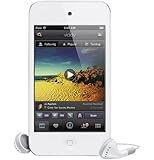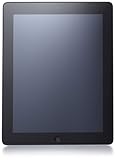"We started out to get a computer in the hands of everyday people, and we succeeded beyond our wildest dreams."
- Steve Jobs, Co-Founder of Apple Computer Inc., 1976.
Steve Jobs was adopted to a family in Mountain View, California. While still in high school, Jobs interest in electronics prompted him to call William Hewlett of Hewlett-Packard to ask for some parts for a school project. Hewlett in case,granted the parts and then made an offer to Jobs to intern at Hewlett-Packard for a summer. There, Jobs met Steve Wozniak, a talented and knowledgeable engineer five years older than the high school student. Their friendship would at last be the foundation on which Apple was built.
Apple Computer - Steve Jobs' Success Story
Jobs dropped out of Reed College after one semester and went to work for Atari designing games. He thought about saved the money he earned while working at Atari so that he could take a trip to India and sate his bourgeoning interest in the spiritualism of the East.
After returning home from India, Jobs and Wozniak renewed their friendship. Jobs was shown a small computer that Wozniak had been working on as a hobby, but Jobs saw its possible immediately and persuaded Wozniak to go into company with him. In 1975, at the age of 20, Jobs went to work in his parents' stable with Wozniak working on the Apple I prototype.
The Apple I sold modestly, but well sufficient to be able to go to work on the Apple Ii. In 1977, the new model was put on sale. With a keyboard, colour monitors and user-friendly software, Apple became a success. The company made million in their first year and had surpassed 0 million in their third.
However, in addition to the Apple Iii and its successor the Lisa not selling as well as had been hoped and a marked growth in competition in the sale of Pcs, 1980 saw Apple lose approximately half of its sales to Ibm. Things got worse for Jobs in 1983 when a fight with the directors got him kicked off the board by the Ceo, John Sculley, whom Jobs himself had hired.
In 1984, as a response to the sharp decline in sales, Jobs released the Apple Mac Processing speeds previously unseen, unmatched graphics, and an optic disk drive, at ,950 each, sold poorly.
Persistent after the failures of the NeXt venture, Jobs began toying with software and started to focus his concentration on a company he'd bought from George Lucas in 1986, Pixar Animation Studios. Jobs signed a three-picture deal with Disney, and began working on the first computer-animated feature. Released in the fall of 1995, it had taken "Toy Story" four years to be made. But the work had been well worth it, the film was an anticipated success. Pixar went collective in 1996, and in one day of trading, Jobs 80% share had come to be worth billion.
Apple was struggling, having failed to develop a new Mac Proving the ability of the Apple computers. The introduction of the G3 Power Pc microprocessor made the Apple faster than those computers operating on Pentium processors. Apple also turned its energies toward producing an cheap desktop, the iMac, that was another hit for the company. With Jobs once again in control, Apple was able to quickly turn itself around, and by the end of 1998, was bringing in .9 billion in sales. Jobs had returned to his first love, a exiguous older and a exiguous wiser. He had made Apple salutary again and returned it to a place where it was contributing new and innovative technologies to the computer world.
apple macbook air superdrive
My Links : SAMSUNG UN40D6000 ODYSSEY PC680 INTIMATE bras Oregon Chainsaw Chains













